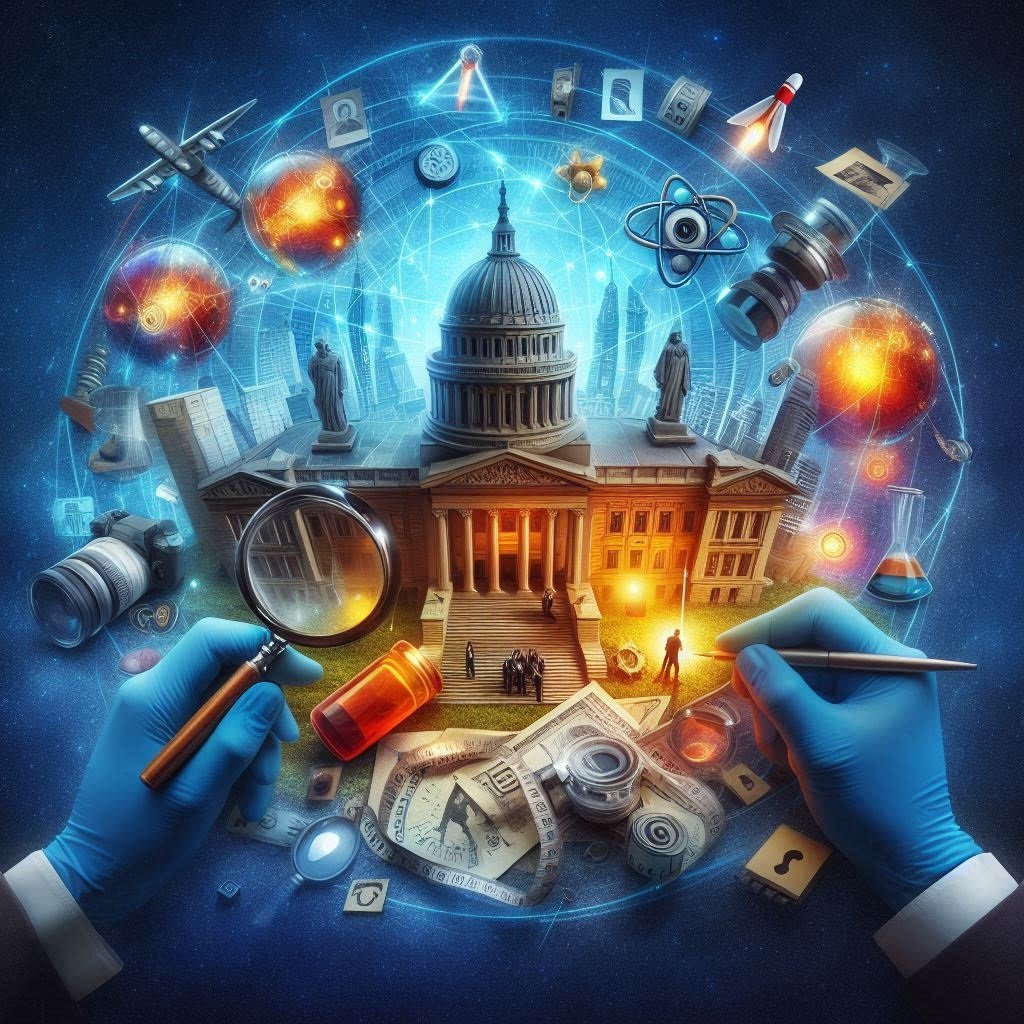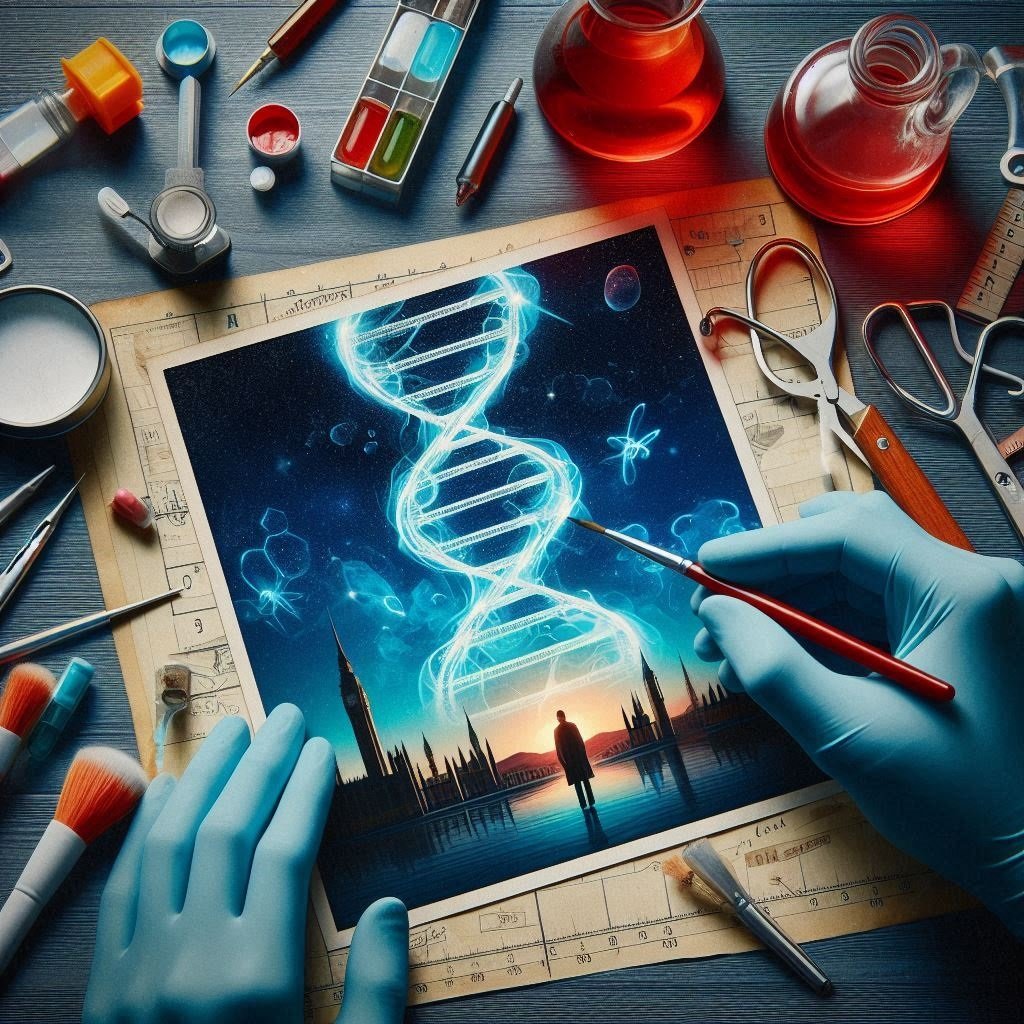Forensic science is a fascinating field that bridges the gap between science and law. It allows us to uncover hidden truths, solve crimes, and deliver justice. Imagine being able to piece together a mystery like your favorite CSI hero. Intriguing, isn’t it?
In this blog, we’ll take you on a journey through the world of forensic science. We’ll explore how evidence is collected and analyzed. You’ll learn about the various tools and techniques used by forensic scientists. We’ll also look at the different career paths in this exciting field. By the end, you’ll have a comprehensive understanding of forensic science and its impact on our society.
What is Forensic Science?
Forensic science is the application of scientific methods and techniques to investigate crimes. It involves collecting, preserving, and analyzing physical evidence. This evidence can include anything from fingerprints and DNA to digital data and chemical substances. The goal is to uncover the facts and provide objective information that can be used in court.
Forensic science plays a crucial role in the criminal justice system. It helps law enforcement agencies to solve crimes and bring perpetrators to justice. It also helps to exonerate the innocent and ensure that justice is served.
The History of Forensic Science
The history of forensic science dates back to ancient times. The Chinese used fingerprints for identification as early as the 7th century. In the 19th century, modern forensic science began to take shape. The development of the microscope allowed scientists to examine evidence in greater detail. The introduction of fingerprint analysis revolutionized criminal investigations.
In the 20th century, forensic science continued to evolve. The discovery of DNA and the development of DNA profiling transformed the field. Today, forensic science is a highly advanced and specialized discipline. It uses cutting-edge technology and sophisticated techniques to solve crimes.
Collecting and Preserving Evidence
The first step in any forensic investigation is the collection and preservation of evidence. This is a critical process that requires careful attention to detail. Evidence must be collected in a way that prevents contamination and preserves its integrity.
Crime Scene Investigation
When a crime is committed, the first responders secure the scene to prevent contamination. Forensic investigators then conduct a thorough examination of the scene. They document the scene with photographs and sketches. They collect physical evidence such as fingerprints, blood samples, and fibers.
Chain of Custody
Maintaining the chain of custody is essential to ensure the integrity of the evidence. The chain of custody is a record of everyone who has handled the evidence. This record ensures that the evidence has not been tampered with or contaminated.
Analyzing Evidence
Once the evidence is collected, it is sent to a forensic laboratory for analysis. Forensic scientists use a variety of techniques to analyze the evidence. The type of analysis depends on the nature of the evidence.
Fingerprint Analysis
Fingerprint analysis is one of the oldest and most reliable methods of identification. Forensic scientists examine the unique patterns in fingerprints to match them to a suspect. Advances in technology have made it possible to scan and compare fingerprints quickly and accurately.
DNA Analysis
DNA analysis has revolutionized forensic science. Every individual has a unique DNA profile, which can be used to identify them. Forensic scientists extract DNA from biological samples such as blood, saliva, and hair. They then compare the DNA profile to a database of known profiles. DNA analysis can link a suspect to a crime scene or victim with a high degree of certainty.
Ballistics
Ballistics is the study of firearms and ammunition. Forensic ballistics experts analyze bullets, cartridge cases, and gunshot residues. They can determine the type of firearm used and link it to a suspect. Ballistics analysis can also provide information about the trajectory and impact of a bullet.
Toxicology
Forensic toxicology involves the analysis of drugs, alcohol, and poisons. Toxicologists examine biological samples to detect the presence of these substances. This analysis can provide crucial information about the cause of death or impairment of a suspect.
Digital Forensics
In today’s digital age, digital forensics is an increasingly important field. Digital forensic experts analyze electronic devices such as computers, smartphones, and tablets. They can recover deleted files, trace online activity, and uncover digital evidence of criminal activity.
Forensic Science in the Courtroom
Forensic evidence plays a crucial role in the courtroom. It provides objective and scientific information that can support or refute a case. Forensic scientists may be called to testify as expert witnesses. They explain their findings and the methods used to obtain them. Their testimony can have a significant impact on the outcome of a trial.

Career Paths in Forensic Science
Forensic science offers a wide range of career opportunities. Whether you’re interested in biology, chemistry, or technology, there’s a place for you in this field.
Forensic Scientist
Forensic scientists work in laboratories analyzing evidence. They may specialize in areas such as DNA analysis, toxicology, or ballistics. A degree in a scientific field is typically required, along with specialized training in forensic techniques.
Crime Scene Investigator
Crime scene investigators (CSIs) collect and preserve evidence at crime scenes. They document the scene, take photographs, and collect physical evidence. CSIs need a strong attention to detail and a background in criminal justice or forensic science.
Forensic Pathologist
Forensic pathologists are medical doctors who perform autopsies to determine the cause of death. They examine bodies and collect evidence from deceased individuals. This career requires a medical degree and specialized training in forensic pathology.
Digital Forensic Expert
Digital forensic experts analyze electronic devices for evidence of criminal activity. They recover deleted files, trace online activity, and uncover digital evidence. A background in computer science or information technology is typically required.
Forensic Toxicologist
Forensic toxicologists analyze biological samples for the presence of drugs, alcohol, and poisons. They provide crucial information about the cause of death or impairment of a suspect. A degree in chemistry or toxicology is typically required.
The Impact of Forensic Science on Society
Forensic science has a profound impact on our society. It helps to solve crimes, bring perpetrators to justice, and exonerate the innocent. It also plays a crucial role in preventing crime and enhancing public safety.
Solving Crimes
Forensic science provides law enforcement agencies with the tools and techniques they need to solve crimes. It allows investigators to identify suspects, link them to crime scenes, and gather evidence to support their cases. Without forensic science, many crimes would go unsolved.

Bringing Perpetrators to Justice
Forensic evidence is often the key to securing a conviction in a criminal case. It provides objective and scientific information that can support the prosecution’s case. Forensic scientists play a crucial role in the courtroom, providing expert testimony and explaining their findings to the jury.
Exonerating the Innocent
Forensic science also plays a crucial role in exonerating the innocent. DNA analysis, in particular, has been instrumental in overturning wrongful convictions. By providing objective and scientific evidence, forensic science helps to ensure that justice is served.
Enhancing Public Safety
Forensic science contributes to public safety in many ways. It helps to identify and apprehend criminals, preventing them from committing further crimes. It also helps to identify patterns and trends in criminal activity, allowing law enforcement agencies to develop effective strategies to combat crime.
Conclusion
Forensic science is a fascinating and essential field that bridges the gap between science and law. It allows us to uncover hidden truths, solve crimes, and deliver justice. From the collection and preservation of evidence to its analysis and presentation in the courtroom, forensic science plays a crucial role in the criminal justice system.
If you’re intrigued by the idea of piecing together a mystery like a CSI hero, consider a career in forensic science. Whether you’re interested in biology, chemistry, or technology, there’s a place for you in this exciting field.
So, the next time you watch your favorite crime drama, remember the real-life forensic scientists who work tirelessly behind the scenes. Their dedication and expertise help to keep our society safe and ensure that justice is served. Dive into the fascinating world of forensic science and unlock the secrets that lie within.
